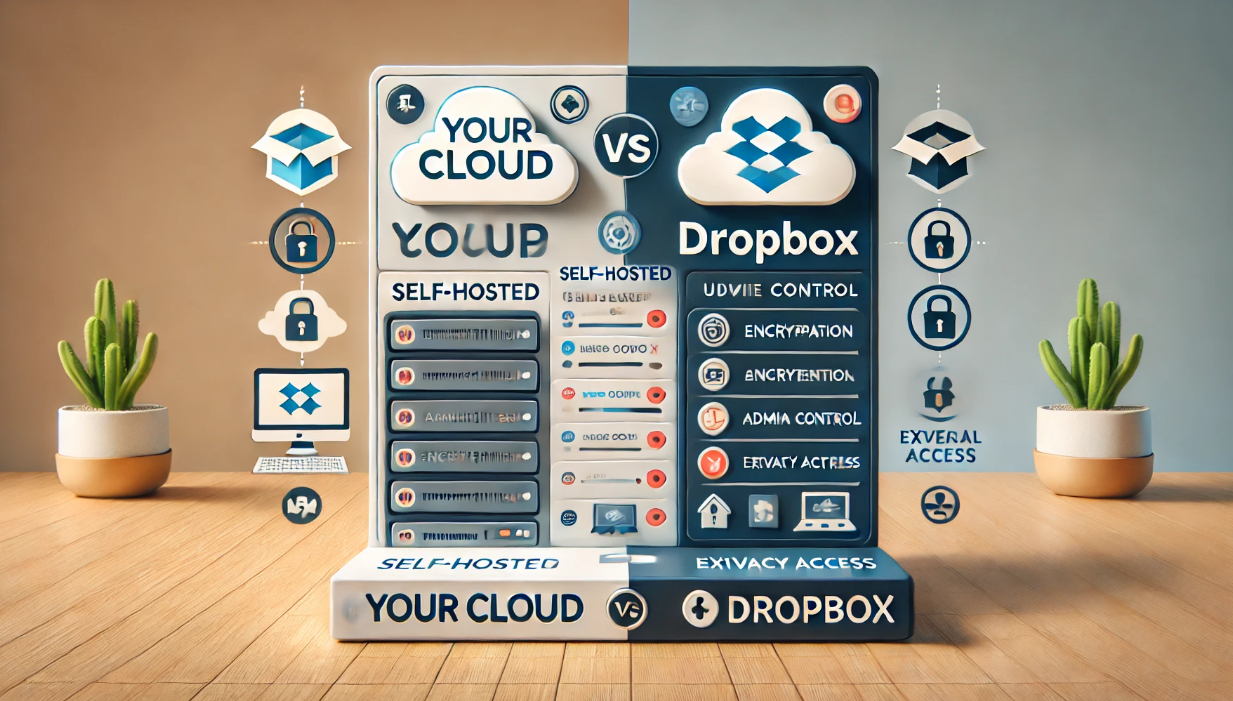Host Your Own Cloud Storage on a VPS Using Nextcloud or Seafile
Meta Description: Want a private alternative to Dropbox or Google Drive? Learn why hosting your own cloud storage with Nextcloud or Seafile on a VPS is a smart, secure solution for tech-savvy users.
☁️ Introduction: Take Back Control of Your Data
Tired of relying on Big Tech for your personal or business file storage? Want a Dropbox-style experience with full ownership, security, and customization?
With a Virtual Private Server (VPS) and open-source tools like Nextcloud or Seafile, you can host your own cloud storage — and gain total control over your files, privacy, and collaboration.
It’s perfect for developers, freelancers, agencies, and privacy-conscious users who want a robust cloud platform without monthly fees or third-party limitations.
Why Host Your Own Cloud Storage?
✅ 1. Privacy and Data Ownership
When you self-host on a VPS:
-
Your data stays under your control
-
No third-party access or data harvesting
-
Fully compliant with privacy standards (ideal for GDPR-conscious users)
Unlike Google Drive or Dropbox, you own everything — including metadata and user activity logs.
✅ 2. No Monthly Fees or Storage Limits
Once you set up your VPS and storage, there are:
-
No recurring SaaS charges
-
No arbitrary file size or type restrictions
-
Freedom to upgrade storage as needed (scale with your VPS plan)
Great for teams, creative professionals, or anyone managing large files like photos, videos, or codebases.
✅ 3. Customizable and Extendable
Nextcloud and Seafile aren’t just storage tools — they’re full ecosystems.
With plugins and add-ons, you can:
-
Enable calendar and contact sync
-
Collaborate on documents in real time
-
Add encryption, backup automation, and more
It’s like running your own private Google Workspace — but modular and open source.
✅ 4. Access From Anywhere, Any Device
Both platforms offer:
-
Web interfaces for file management
-
Mobile and desktop apps for syncing
-
WebDAV and API access for automation
Your VPS acts as your always-online personal cloud, accessible 24/7 — without worrying about vendor outages or policy changes.
Nextcloud vs Seafile: Which One’s Right for You?
| Feature | Nextcloud | Seafile |
|---|---|---|
| Focus | Full collaboration platform | Fast, efficient file syncing |
| Performance | Heavier, but highly flexible | Lightweight, high-performance |
| File Sync | Good | Excellent |
| Apps & Integrations | Large ecosystem | Minimal but focused |
| Ideal For | Teams, businesses, collaboration | Developers, solo users, fast sync |
| Encryption | Built-in options available | End-to-end encryption support |
TL;DR:
-
Choose Nextcloud if you want a Google Drive alternative with extras like calendar, notes, and document editing.
-
Choose Seafile if you want lightning-fast syncing and a simple, elegant file manager.
⚙️ Why a VPS Is the Best Platform for Hosting Your Cloud
A VPS gives you:
-
Root-level access to configure and secure your environment
-
Dedicated resources (RAM, CPU, disk) for consistent performance
-
Scalability — start with 1 CPU and 1GB RAM, upgrade as you grow
-
Full control over storage — mount SSDs, add block storage, or backup to S3
Compared to shared hosting or third-party cloud services, a VPS offers power, privacy, and flexibility for a low monthly cost.
Security and Performance Best Practices
Even without install steps, here are a few pro tips for keeping your self-hosted cloud secure and fast:
-
Use HTTPS/SSL encryption with Let’s Encrypt
-
Enable 2FA for user accounts
-
Set up automated backups offsite or to external volumes
-
Monitor with tools like Netdata or UptimeRobot
-
Keep software updated regularly (both OS and cloud platform)
Remember: You’re the admin now — and that’s the power of self-hosting.
Use Cases: Why People Host Their Own Cloud
-
Developers: Sync projects, share documentation, store private repos
-
Photographers & Creators: Archive large files, deliver client galleries
-
Teams & Agencies: Collaborate securely on internal documents
-
Privacy Advocates: Eliminate third-party data tracking and lock-in
-
Educators: Share course material and manage resources privately
Real-World Example: Building a Private Cloud for Business
Case Study:
A small marketing agency needed to:
-
Share large design files with clients
-
Sync files across team laptops and phones
-
Avoid costly storage platforms
They deployed Nextcloud on a 2-core VPS with 4GB RAM and 500GB block storage. It now supports 10 users, handles real-time edits, and has zero monthly SaaS fees.
✅ Summary: Take Cloud Into Your Own Hands
Hosting your own cloud with Nextcloud or Seafile on a VPS gives you:
-
More control
-
More storage
-
More privacy
And once you set it up, it runs like any other cloud platform — but under your terms.
If you’re ready to ditch Dropbox, own your storage, and customize your cloud, a VPS-hosted solution is the way to go.

